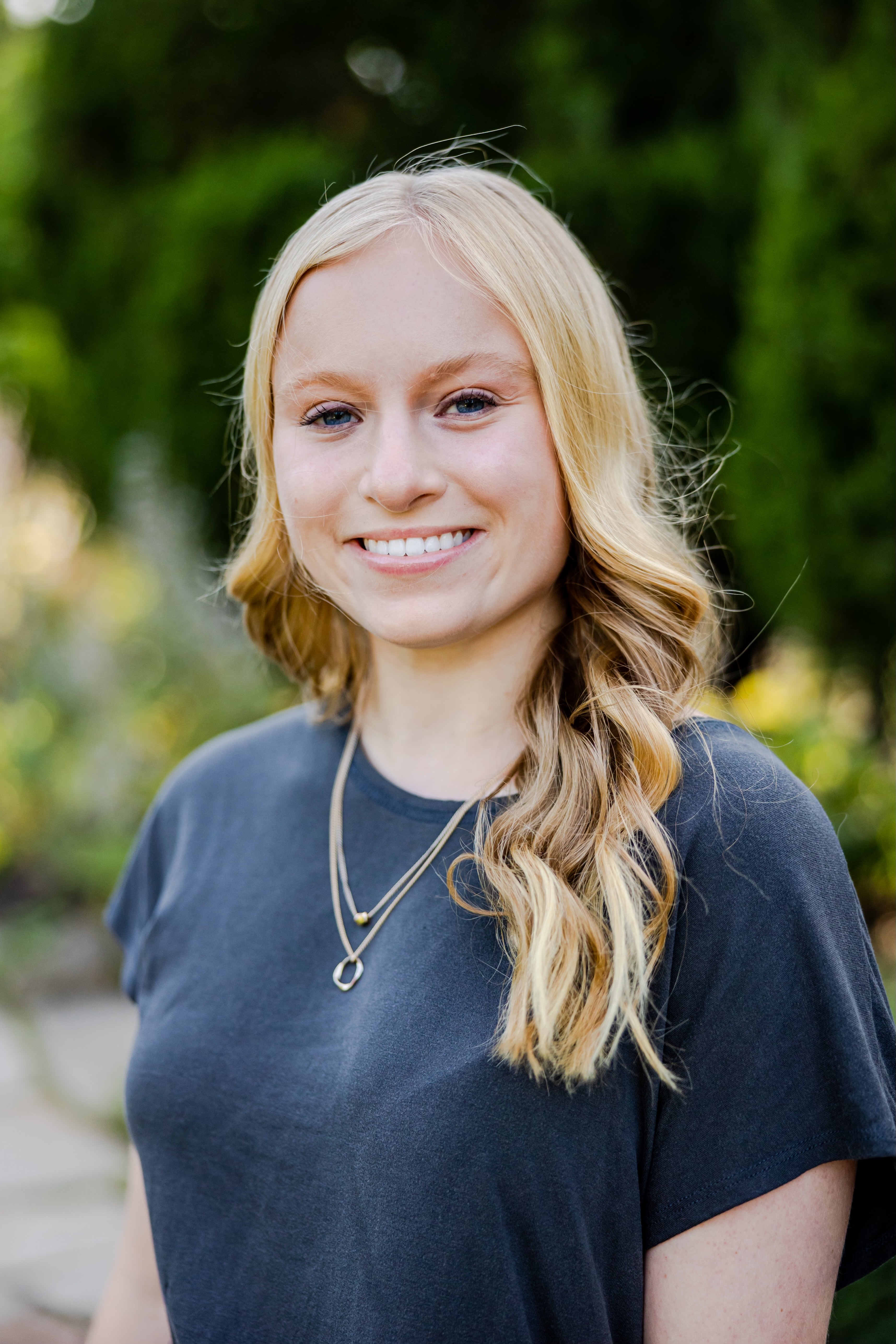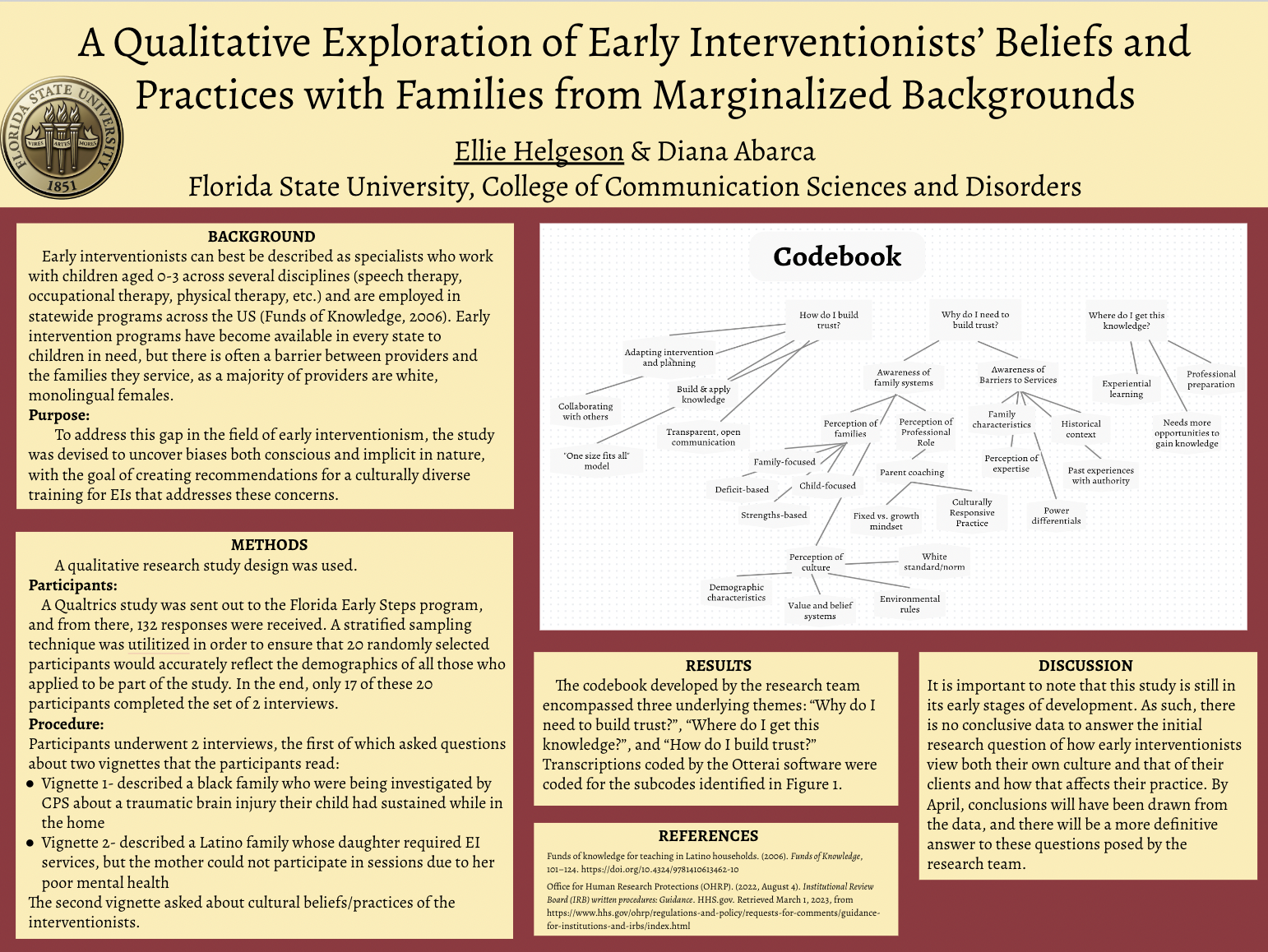Research Symposium
23rd annual Undergraduate Research Symposium, April 6, 2023
Ellie Helgeson Poster Session 1: 11:00 am - 12:00 pm/ Poster #98

BIO
My name is Ellie Helgeson, and I am originally from Potomac, Maryland. Some of my other involvements on campus include Best Buddies, the Honors program and Student Association, and Kappa Kappa Gamma, where I serve in several different leadership positions. In addition to that, I am a Communication Sciences and Disorders and Family and Child Sciences major here at Florida State, and also hold a Spanish minor. Through my primary major, CSD, I hope to become certified in working with bilingual families, and that's where this project with the Undergraduate Research Opportunity Program comes in. Traditionally, the largest gap in services has been found in working with bilingual families, as there is a lack of providers who are able to bridge a language barrier and remain culturally responsive. As such, I would like to become a speech-language pathologist working in early interventionism with these families in the future, and help to create these changes.
A Qualitative Exploration of Early Interventionists’ Beliefs and Practices with Families from Marginalized Backgrounds
Authors: Ellie Helgeson, Diana AbarcaStudent Major: Communication Sciences and Disorders, Family and Child Sciences
Mentor: Diana Abarca
Mentor's Department: Communication Sciences and Disorders Mentor's College: College of Communication and Information Co-Presenters: N/A
Abstract
This study aims to analyze how early interventionists work with families from marginalized backgrounds, or more specifically, black and Latino/Hispanic families, and how these experiences inform their practice. Early interventionists can best be described as specialists who work with children aged 0-3 across several disciplines (speech therapy, occupational therapy, physical therapy, etc.) and are employed in statewide programs across the US. These programs have become available in every state to children aged 0-3 in need of services, but there is often a barrier between providers and the families they service, as a majority of providers are white, monolingual females.
Participants underwent a series of 2 one-on-one interviews with a member of the research team and were asked a series of questions regarding two vignettes; these vignettes described somewhat ambiguous, but negative, situations that might occur when going into homes, and follow-up questions determined the interviewee’s own cultural background. Afterwards, qualitative data analysis in the form of a coding system was used to determine “themes” among the providers’ thoughts on culture and race in the context of early interventionism. The study is currently in the stages of data interpretation, as the research team spent the last 3 months interviewing participants and transcribing these interviews; the next 3 months will involve building codes to interpret these transcriptions and writing an academic paper to synthesize the given results.
Keywords: therapy, bias, early interventionism, culture

